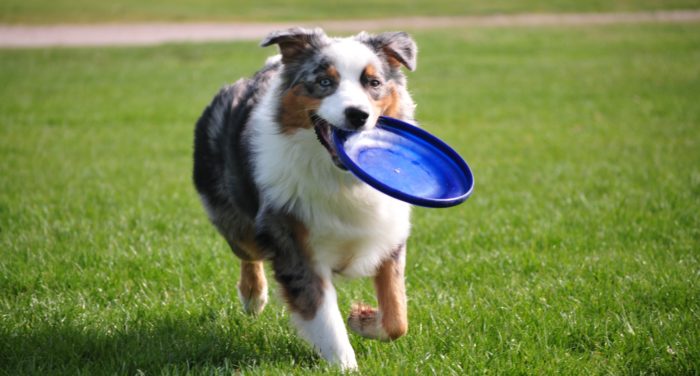Preventing A Pet Emergency This Summer

Here are some ways to prevent the most common summertime pet emergencies we see:
HEAT STROKE – NEVER leave your pet alone in the car on a warm day, regardless of whether or not the windows are open. Even if the weather outside is not extremely hot, the inside of a car acts like an oven; temperatures can rise to dangerously high levels in a matter of minutes, even on a cooler 70˚ day. Avoid vigorous exercise with your pet on warm days. When outside, opt for shady areas.
DOG BITES – A dog at the beach or park wagging his tail is not necessarily friendly and may not wish to interact with you or your pet. An aggressive dog may make himself appear larger (ears up and forward, fur on back puffed, and tail up or wagging), and an anxious or fearful dog may make himself appear smaller (crouched, head lowered, tail between legs, and ears flattened). Both may give verbal warnings of discomfort. If you see a dog exhibiting these signs, slowly back away and steer clear.
HIT BY CAR – When the weather is nice, we want to spend as much time as possible outdoors. This can lead to more open windows and doors, off-leash time, and even nodding off in your favorite summer chair. Wherever you’re having fun, be sure your pet is safely secured. If you are walking along roadways with your pet, keep the leash tight and know where he is at all times. It takes only a moment of distraction for your pet to get in front of a moving vehicle.
PICNIC FOOD INGESTION – Common picnic staples like corn on the cob, grapes, chicken bones, avocado, brownies, and onions can all be very dangerous for pets. Grapes, avocados, chocolate, and onions are very toxic, while bones and corn cobs can cause painful intestinal obstruction or injury that may even require emergency surgery to remove.
LEPTOSPIROSIS – Leptospirosis is a bacterial infection that comes from the urine of wildlife. Your furry friend can contract this disease in a few ways, but most often from drinking stagnant water or coming into contact with wild or farm animals. If your pet has contracted leptospirosis, he will exhibit common symptoms of illness including loss of appetite, fever, diarrhea, vomiting, lethargy, and muscle tenderness. If your pet is not acting like himself and you notice any of these signs, consider it a pet emergency and be sure to bring him to your family veterinarian or an emergency hospital like VRC as soon as possible.
BRACHYCEPHALIC BREEDS (Short snout) – Dog breeds like pugs, bulldogs, Pekingese, and Boston terriers, and cat breeds like Persians and exotic shorthairs all have shorter snouts, which means that their airways can become more easily obstructed. When it is hot, dogs and cats pant to help release heat and cool their bodies. Heavy panting can lead to complete airway obstruction in some of these shorter snout breeds, which means that they might become unable to breathe. If you have a pet with a shorter snout, be sure to keep him cool at all times during the summer to prevent a pet emergency.
If you experience a pet emergency this summer, VRC in Malvern is open around the clock to provide medical care for your pet, even on weekends and holidays.






 Email
Email
